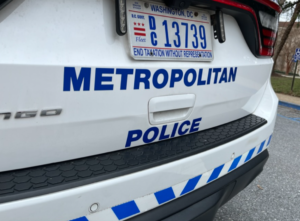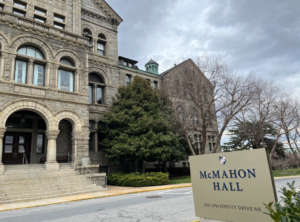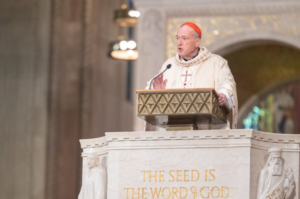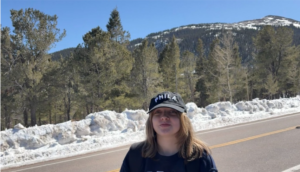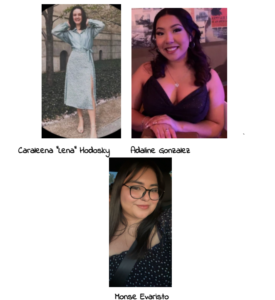A Conversation about Christianity in Palestine Held in Heritage Hall
By Duane Paul Murphy
More than 30 guests in attendance gathered on Thursday night in Heritage Hall to listen to a conversation about the state of Christianity in Palestine from the personal experiences from a native Gazan Christian. Khalil Sayegh, an associate fellow of the a pro-Israel Christian advocacy non-profit organization Philos Project, was the main speaker at event co-organized by his organization as well as the International Affairs Association (IAA). Dr. Joseph E. Capizzi, executive director of the Human Ecology Institute at The Catholic University of America, was the moderator.
Born in 1994 in the Palestinian territory of the Gaza Strip, Sayegh grew up under its Israeli occupation. The majority of his own life was impacted by major geopolitical events in the region including Israeli withdrawal from Gaza in 2005, the ascendance of the militant Islamist party Hamas in 2007, and the 2008 and 2009 Gaza War between Israel and Gaza forces. Despite these serious crises throughout Gaza’s history in the early 21st century, Sayegh said that his own personal experiences as a Palestinian Christian in Sunni Muslim Gaza and a recent West Bank resident living side by side with Jewish Israelis as well as other Arab Christians have shaped his own perspectives on internal struggles for Palestinian independence and better relations with Israel.
Throughout the discussion with Capizzi, Sayegh highlighted the fact that the Israeli-Palestinian Conflict is not just a struggle between Jews and Muslims in the region, but between Israelis and Palestinians of all backgrounds. Also, Sayegh mentioned that the origins of modern Palestinian Arab nationalism in the early 20th derived from Palestinian Arab Christians who were mostly politically actives as well educated overseas.
When the state of Christianity in Palestine was brought up, Sayegh said that Christian and Muslim leaders who are politically active in the West Bank must reduce their Anti-Israel rhetoric alongside maintaining actions toward non-violence as well as civil disobedience in order for their to be cooperation and dialogue. Sayegh has also been critical of corruption and a lack of democracy in Palestine ruled by Hamas in Gaza and Fatah in the West Bank. Being harassed under Hamas ruled Gaza for being Christian, Sayegh said that was the primary reason why he moved to the West Bank where the Christian minority is more present and tolerated.
During the questions and answers portion with the audience in attendance, in response to question regarding the Boycott, Divestment, and Sanctions movement (BDS), Sayegh believe that it is not effective due to the lack of cooperative and diplomatic dialogue between Palestine and Israel. When asked if an independent and sovereign Palestine would accept an increase in Arab Christian escaping sectarian violence through the Arab World, Sayegh said that he would personally advocate for this particular type of policy, but is skeptical that the Palestinian government in its current form would due to priorities of right of return for Palestinian Arab refugees living across the region from Syria to Lebanon.
After the event, students in attendance expressed positive reviews.
“Khalil presented a forward thinking and peace minded perspective regarding the ongoing conflict between Israel and Palestine,” said junior politics major Michael H. Klein.
As of 2019, there has been no permanent or long term commitment towards a two-state solution between Israel and Palestine.

